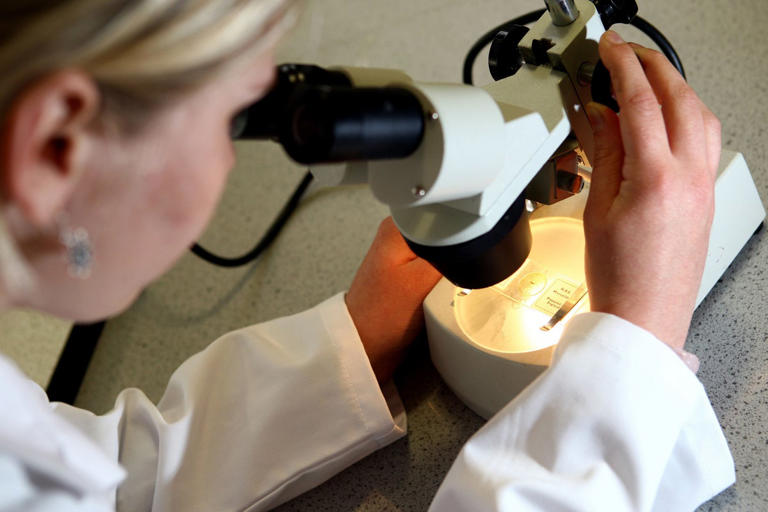“IBD Major Cause Discovery: 5 Shocking Problems You Didn’t Know About”
Table of Contents
ToggleIBD Major Cause Discovery: A Game-Changer in Inflammatory Bowel Disease Research
Discover the groundbreaking findings in IBD major cause discovery. Researchers have identified a key genetic factor in inflammatory bowel disease (IBD) and found potential treatments using existing medications. Learn more about this significant advancement in IBD research.

© PA Wire
IBD Major Cause Discovery: Unveiling the Root of Inflammatory Bowel Disease
Both are serious and chronic diseases that cause inflammation in the digestive tract. IBD affects more than half a million people in the UK, a number that has nearly doubled in recent years. Despite current treatments, many patients continue to struggle with symptoms and flare-ups. But recent research has made a breakthrough in understanding the major causes of IBD and finding potential treatments.
A Major Step Forward in Understanding IBD
The IBD major cause discovery comes from a study conducted by researchers at the Francis Crick Institute in collaboration with UCL and Imperial College London. They identified a specific section of DNA that is active only in certain immune cells. These cells are known to play a significant role in causing inflammation in the bowels. This discovery is crucial because it highlights a key factor in the development of IBD and offers new avenues for treatment.
How the Discovery Could Change Treatment Approaches
Current treatments for IBD, while beneficial for some, do not work for everyone. The challenge in developing new drugs has been a lack of understanding about what causes the disease. The IBD major cause discovery has the potential to change this. By pinpointing a genetic factor linked to inflammation, researchers can explore how existing medications, used for other conditions, might be repurposed to treat IBD.
Testing Existing Medications
In the study, researchers tested medications that were not originally designed to treat inflammation in the gut. To their surprise, these drugs effectively reduced inflammation in immune cells and in gut samples from patients with IBD. This finding is exciting because it suggests that treatments already available could be adapted to help manage IBD more effectively.
Challenges and Next Steps
Despite the promising results, there are challenges to overcome. The medications tested so far have side effects on other organs, which means they cannot be used as they are. The next step in the research is to find ways to deliver these medications directly to the immune cells causing the inflammation. This targeted approach could help minimize side effects and improve treatment outcomes for IBD patients.
The Role of Macrophages in IBD
Macrophages, a type of immune cell, have been found to play a critical role in IBD. The IBD major cause discovery highlights how a specific DNA section linked to inflammation in these cells could be targeted for treatment. By focusing on this genetic pathway, researchers are uncovering new ways to address the root causes of IBD.
Looking Ahead: Future Research and Developments
James Lee, who led the research at the Crick Institute and is a consultant gastroenterologist at the Royal Free Hospital and UCL, emphasized the importance of this breakthrough. “Better treatments are urgently needed.” The research team is now focused on refining their approach to ensure that the new treatments are both safe and effective for patients.
Collaborative Efforts and Funding
The study, published in Nature, received support from several organizations, including Crohn’s and Colitis UK, the Wellcome Trust, the Medical Research Council, and Cancer Research UK. Researchers worked with volunteers from the NIHR BioResource, who provided blood samples to aid in the study. This collaborative effort across the UK and Europe has been crucial in making this significant advancement possible.
Conclusion: A Promising Future for IBD Treatment
The IBD major cause discovery marks a significant step forward in understanding and treating inflammatory bowel disease. By identifying a key genetic factor and exploring existing medications, researchers are opening new doors for more effective treatments. While there are still challenges to address, the progress made so far offers hope to the hundreds of thousands of people living with IBD. With continued research and innovation, there is optimism that more targeted and effective treatments will be developed in the near future.
ALSO READ:
FLiRT Covid Variant: 7 Alarming Facts You Need to Know



